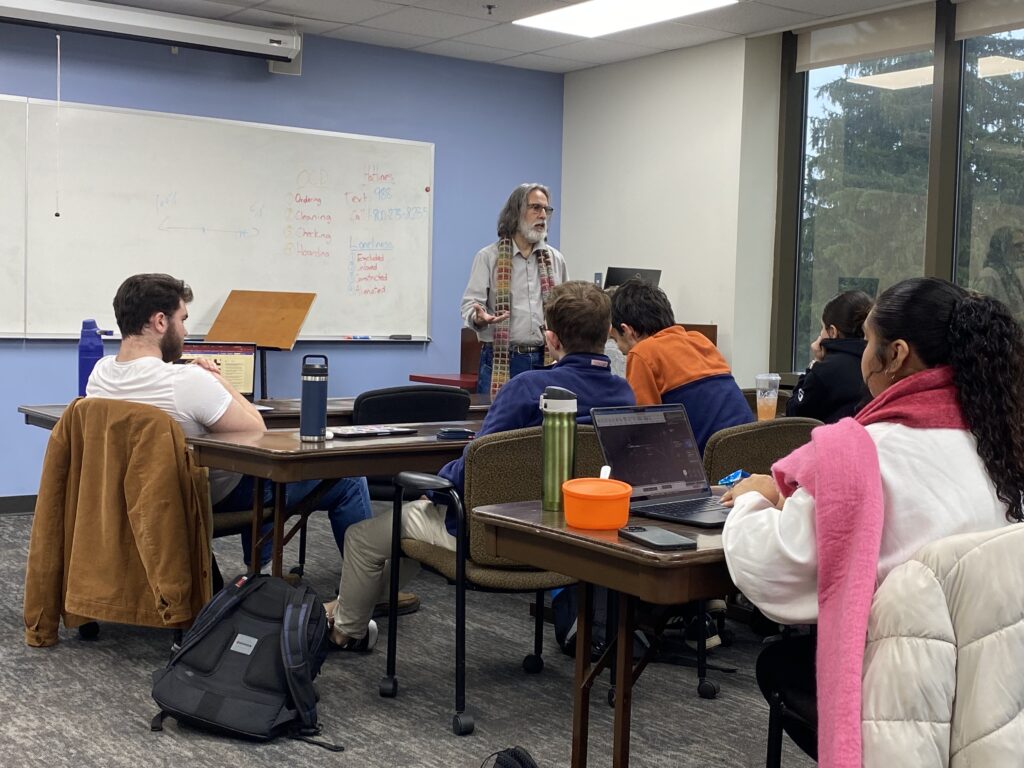Newsflash: Cabrini is closed. Along with the dozens of students, Eastern has also absorbed faculty. The new faculty members have subsequently brought over additions to the curriculum of a few majors. One department that will be going through a lot of changes is communication studies.
Dawn Francis and John Doyle are two incredibly talented professors who lived and breathed Cabrini. They were both students who graduated but eventually returned to their Alma Mater to educate up-and-coming communication studies students.
The Cabrini comm department was focused on production and practical experience. It was home to a few media agencies where students were given hands-on experiences. The Loquitur, Cabrini’s award-winning newspaper, let students get experience working in journalism. Social Nexus was the student-run social media agency. House 67 was for anyone seeking experience with video production. Last but not least, Cavalier Radio allowed students to be DJs on the college radio station. When Cabrini closed, Eastern threw a life tube to stranded students but pulled some of the Cabrini spirit in too.
Julie Morgan, the department chair of communication studies, had been looking to expand the department’s media production side.
“This institution is healthy economically and academically, and the department was interested in expanding,” Doyle, a new lecturer of communication studies, said. “We’re hybridizing the program. We’re taking what we did at Cabrini and melding it with what was here,” Doyle added.
Cabrini focused on the production side of the world. Eastern focused on the strategic side of media. Doyle explained, “Eastern has a foundation in theory and interpersonal practice for students going into media. The media practice we bring will serve as a structure for the students,” Doyle said.
So, when Cabrini was closing, it created an opportunity to shift the media production elements that existed at Cabrini to Eastern’s curriculum. These will serve as a practice for courses that form the department. At the same time, the students who are more interested in media production will take courses that establish the underlying ideas of how each outlet works. “We’re creating a hybrid program that provides students the ability to choose the path they want to pursue in the major. We’re going to see what works best,” Doyle said.
With this shift, it is important to note that the existing courses are not being replaced. “There are classes that existed here that are remaining. Some of those classes have been augmented by production things [Cabrini] brought over,” Doyle said. A great example of this would be the new version of The Art of Film. The bare bones of the course are the same, but Doyle has added his personal brand of teaching. He also swapped the film used to demonstrate the feminist lens from “Clueless” to “10 Things I Hate About You.”
“We’re also bringing the concepts of agencies with us,” Doyle said. One such agency is a brand-new radio station. “It’s gonna be good to play music, and it’ll be good to get that identity out in the community,” Doyle, said.
The yet-to-be-named radio station will be a physical manifestation of the hybridization of the two departments. It will serve as a hands-on experience for students interested in production; and will create opportunities for interpersonal growth. The radio station will require students to learn how to operate it on a technical level but also challenge them to conduct interviews or market activities and events.
The station will be an online stream, allowing students who are studying abroad and alumni to listen in. It will be a worldwide 24/7 operation that will automate itself when no student is there to operate it, but students will impart their personalities through speaking and music selection while on air.
“These [media] agencies become a way for students to practice the skills they’re learning in whichever section of communication they’re studying,” Doyle, said.
One of the largest barriers to creating these agencies is having a student staff. “Capacity matters,” Doyle, said. “There’s only a small group right now.” With the radio station still early in development, only a few students have committed to joining. The station will also be open to anyone interested in operating the station, not just comm majors.
Do you want a chance to learn the technical side of production? Do you want to grow your skills in building relationships and interviewing people? Or are you interested in hosting your own radio show and playing whatever music you like? Be on the lookout for more information on how to get involved with the Eastern comm department!

